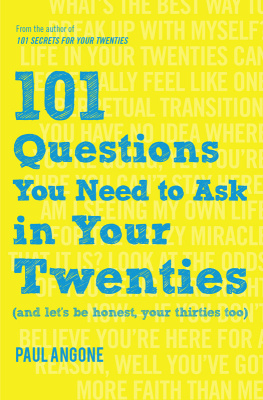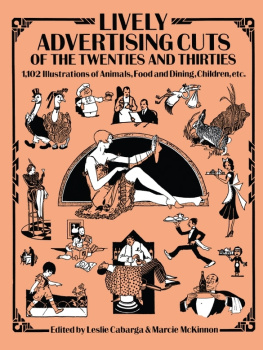Frances Donaldson
Child of the
Twenties

Contents
Foreword to the New
Edition
P.G. Wodehouse always got much pleasure from reading his own novels. I am reduced to English mystery stories and my own stuff, he wrote towards the end of his life. I was reading Blandings Castle again yesterday and was lost in admiration for the brilliance of the writer.
I have none of this feeling for my own stuff, and the last time I read Child of the Twenties was when I corrected the proofs.
Re-reading it more than twenty-five years later, I have been taken by surprise, both by the personality of the writer, a woman of fifty-two, and by that of the person she is writing about from childhood until the age of thirty-two. Both are subtly different from anyone I know now.
In the first place the sense of deprivation of everything which might be called culture is something I have forgotten. I have still not much feeling for the pictorial arts, but twenty-five years of accompanying my husband (for long a director of Covent Garden Opera House and of the English National Opera Company at the Coliseum) often three times a week to the opera or the theatre, and the society of many of the people who have since become my friends have, to some extent, appeased this feeling. Then I am taken aback by the rather acidulated tone in which I often refer to my mother, whom I now remember as someone I loved.
The picture of life immediately after the war would seem to me somewhat exaggerated but for two things. Somewhere in this book I remark I am very truthful. I cannot help it. This is correct and makes me (except under the heaviest vows) a dangerous confidante, because I cannot help establishing what I believe to be the truth. Nor can I ever sleep peacefully if I have doubts about something I have written. So, personally I believe that the picture I have given is accurate within the bounds of skill. Secondly, when it was first published many people of my own age read the book and no one ever suggested it was untrue or exaggerated.
Rupert Hart-Davis published Child of the Twenties and when he first read it he said: I like the second part the best. It has more feeling and it is feeling which makes a book. Rereading it, I find myself agreeing with him. The first half is a description of my youthful surroundings and the world in which I grew up, and may today be the more interesting for that reason. The second is more personal.
Both parts show a picture of the life of the reasonably well-off before 1939 before cooking, child-minding and washing-up took over, before the permissive society, and when no great loss of virtue attached to idleness.
FRANCES DONALDSON
London, 1986
In my youth we had a book which was intended as a short cut to the analysis of personality. First came a list of questions that had to be answered Yes or No, and there was a method of marking the answers. The rest of the book contained the results of the different combinations, each an analysis of character. For a short time we used regularly to play this game with our friends.
It always seemed to me there was one key question, and that the die was cast by the answer to it, no matter what the combination of answers to the rest might be. That question was: Was your childhood happy? If the answer was Yes, one might discover one had all sorts of virtues and abilities, pleasant and likeable characteristics, but they would always be of a humdrum kind. A happy childhood, it seemed, disposed once and for all of any chance of spirituality, imaginativeness or brilliance.
This always distressed me, because by no distortion of self-pity could I claim an unhappy childhood. Possibly I should not so much have minded the dull character-readings my answers always produced if they had not confirmed my own impressions. The truth is I was conscious of a little commonplaceness. Yet I could not help regarding this detestable happy childhood as very bad luck, for from the smattering of the works of the followers of Freud I had by now acquired there seemed to have been so many influences that might have made it unhappy.
In the first place my parents were not in the least well suited. This fact became obvious, however, only much later in their lives, and during my childhood was submerged by their youth, their affectionate natures, by poverty and the struggle they had to keep alive, but most of all, I believe, because they had three children and a quite extraordinarily, in relation to their other characteristics, strong sense of family ties and their duty to them.
My father, Frederick Lonsdale, whom I have described at length elsewhere, was a very unusual man, a man of talent and wit and charm, but with the temperament of a genius. He was as instinctive and unpretentious as an animal, responding with a nervous exclusiveness to the demands of his own nature, and with as much sensitivity to the rules of human intercourse as a well trained cat. If one says that he was selfish and egotistical, that merely touches the edge of his exceptional self-centredness, which was in no way mean or introvert, but of an inspirational kind. He was almost impossible to live with, and, during the last thirty years of his life, he recognised this fact so well that he wandered aimlessly and alone round the world, avoiding any regularised human intimacy. In theory one might have counted on him to produce unhappy children.
He did produce a deep and continuing uneasiness. He was entirely capricious; good-tempered and gay, bad-tempered and viciously cruel, easily pleased and quick to praise, impossibly impatient and critical. His unchallengeable opinions were formed in a mind both shallow and uninformed, but his wits were of a very high order, his personal charm irresistible, and his personality was so strong that he imposed himself on everyone who came in contact with him. He had, both when he wished to please and when he wished to domineer, the rare and overwhelming gift of complete unexpectedness.
He taught us, my two sisters and myself, to be wary in human relations and to distrust the past. Nothing with him could be taken for granted or based on the ordinary presumption of previous experience. To this day I am always made nervous by people who have aroused my interest by seeming to like me; I cannot believe they will do so twice. So often we would go trustfully forward with some gesture of affection or some little joke which yesterday had warmed the day, only for this same thing to be the cause today of disastrous humiliation. One never opened the door of a room he was in, without pausing on the threshold to sense the atmosphere.
Second only to his capriciousness, his impatience had the most lasting effects. He was so unreasonably easily bored. It seemed to us then that the test of the worth of anything was how it might strike him in his mood of the moment; but I wonder now did he aspire to teach us some of his own quick turn of speech? In any case, we learned that it was unpardonable to be dull for the shortest space of time, even in recounting the most necessary facts, and that we must constantly strain our wits and our senses to avoid it. But we had no wits and absolutely no idea of what he might find dull or amusing (he often surprised us by roaring with laughter and approval at some remark this particular sense of which we had been too slow to catch) and, if any of us have even the smallest hereditary share of his originality, he delayed its expression for years. We acquired at this time certain nervous tricks in conversation, interrupting ourselves constantly with Do you want to hear all this? or Am I boring you? and we always had one eye cocked on anyone who asked us a question needing time or thought, to see if he had really expected an answer.
Next page








